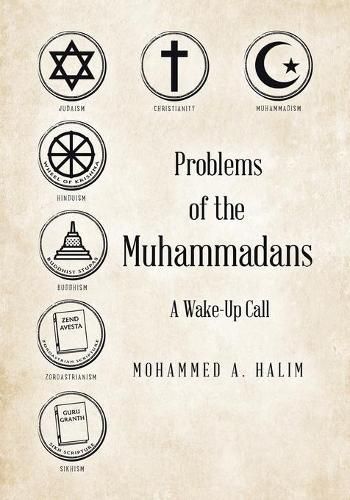Readings Newsletter
Become a Readings Member to make your shopping experience even easier.
Sign in or sign up for free!
You’re not far away from qualifying for FREE standard shipping within Australia
You’ve qualified for FREE standard shipping within Australia
The cart is loading…






This title is printed to order. This book may have been self-published. If so, we cannot guarantee the quality of the content. In the main most books will have gone through the editing process however some may not. We therefore suggest that you be aware of this before ordering this book. If in doubt check either the author or publisher’s details as we are unable to accept any returns unless they are faulty. Please contact us if you have any questions.
According to the Koran, Muhammad was sent exclusively to the Arabs as their Messenger, and Muhammadism (the religion introduced by Muhammad) was formulated exclusively for the Arabs, to be practised inside Arabia. In fact, outside Arabia, Koranic rules on prayer, fasting and pilgrimage (Hajj) are not valid everywhere in the world. So, Muhammad cannot be a Messenger, nor can Muhammadism be a religion for non-Arabs.
The Muhammadans address themselves as Muslims, but the Koran, in its entire volume, never addressed them as Muslims. In fact, the Koran has classified Muhammadans and Muslims as two entirely different classes of people.
With respect to religious matters, the Koran rejects all non-Koranic rules and laws, including all shariah laws, because they began to be formulated by various Muhammadan theologians after Muhammad died and, thus, after the Koran ceased to reveal. The Koran has warned against following all theologian-formulated rules and laws on religious matters. Customs and practices based on non-Koranic rules and laws are not religiously obligatory.
Following customs and practices, based on non-Koranic rules and laws seems to be the primary cause behind all the problems faced by today’s Muhammadans. For example, female clothing, like burqas, hijabs and niqabs, are creating numerous problems throughout today’s Western Christian world, although the Koran never commanded women to wear any of them. This is probably why the Koran has authorized the government of a country to impose a total ban, if necessary, on all customs and practices based on non-Koranic rules and laws, including a total ban on burqas, hijabs and niqabs in all public places, while commanding the Muhammadans to obey the government, without complaint or protest.
$9.00 standard shipping within Australia
FREE standard shipping within Australia for orders over $100.00
Express & International shipping calculated at checkout
This title is printed to order. This book may have been self-published. If so, we cannot guarantee the quality of the content. In the main most books will have gone through the editing process however some may not. We therefore suggest that you be aware of this before ordering this book. If in doubt check either the author or publisher’s details as we are unable to accept any returns unless they are faulty. Please contact us if you have any questions.
According to the Koran, Muhammad was sent exclusively to the Arabs as their Messenger, and Muhammadism (the religion introduced by Muhammad) was formulated exclusively for the Arabs, to be practised inside Arabia. In fact, outside Arabia, Koranic rules on prayer, fasting and pilgrimage (Hajj) are not valid everywhere in the world. So, Muhammad cannot be a Messenger, nor can Muhammadism be a religion for non-Arabs.
The Muhammadans address themselves as Muslims, but the Koran, in its entire volume, never addressed them as Muslims. In fact, the Koran has classified Muhammadans and Muslims as two entirely different classes of people.
With respect to religious matters, the Koran rejects all non-Koranic rules and laws, including all shariah laws, because they began to be formulated by various Muhammadan theologians after Muhammad died and, thus, after the Koran ceased to reveal. The Koran has warned against following all theologian-formulated rules and laws on religious matters. Customs and practices based on non-Koranic rules and laws are not religiously obligatory.
Following customs and practices, based on non-Koranic rules and laws seems to be the primary cause behind all the problems faced by today’s Muhammadans. For example, female clothing, like burqas, hijabs and niqabs, are creating numerous problems throughout today’s Western Christian world, although the Koran never commanded women to wear any of them. This is probably why the Koran has authorized the government of a country to impose a total ban, if necessary, on all customs and practices based on non-Koranic rules and laws, including a total ban on burqas, hijabs and niqabs in all public places, while commanding the Muhammadans to obey the government, without complaint or protest.